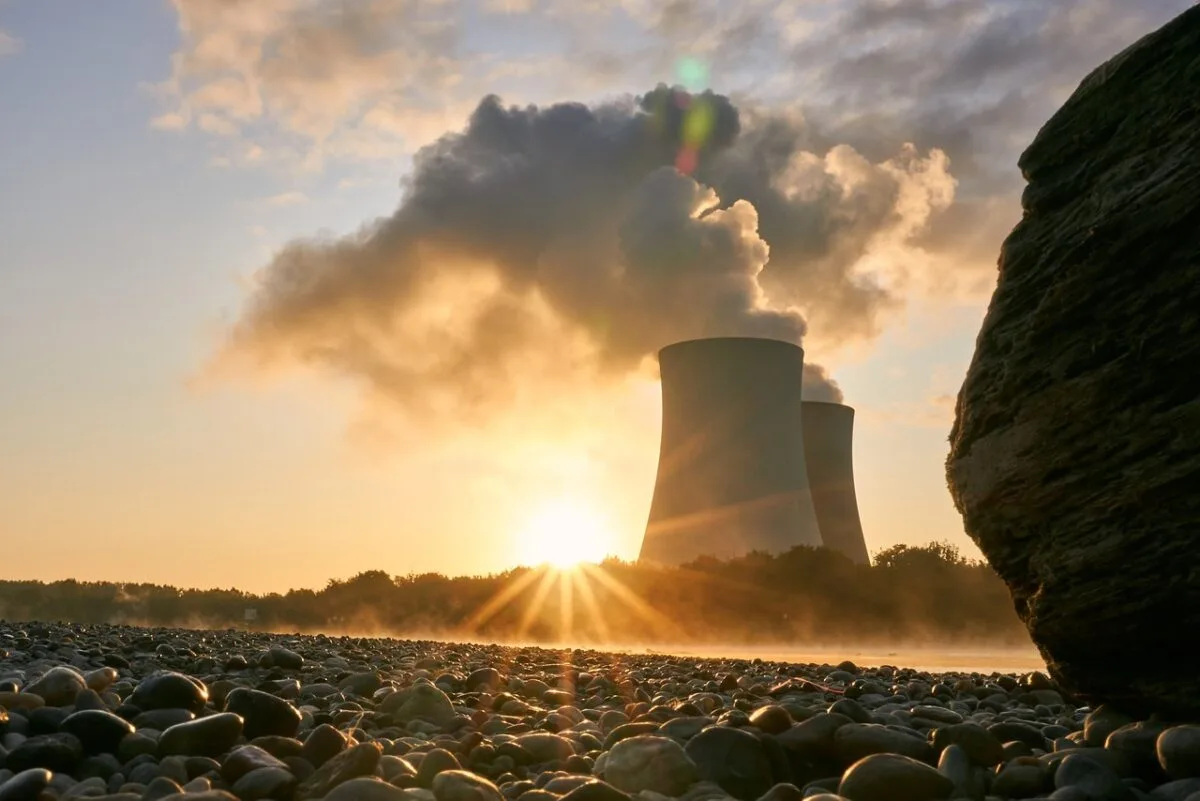The question has always been what does one do when the renewables aren’t providing enough power (ex: nights, etc). The current solution is natural gas. It would be a big improvement if we would use a carbon-free source like nuclear instead.
Pumped-storage hydroelectricity is an old and proven method for load balancing intermittent power sources. Would like to see more of that as geography permits.
The “as geography permits” part is a big obstacle, unfortunately.
Actually it isn’t if you stop only looking at places that are also suitable as power plant, that is, have a big river flowing through them.
You can do pumped hydro in an old mineshaft.
Not in China.
According to the article, the researchers concluded that nuclear reactors are not a good fit for that role.
consumers may also help reduce system costs by adapting their electricity consumption to the availability of renewable energy
From the linked paper. They mention some other options for storage like batteries (plenty of environmental issues there though) but based on the quoted text I have a hard time taking this seriously if they actually expect people to change their behavior.
“Not enough power from renewables? Just turn off your fridge for a few days and you’ll be fine!”
Honestly that sentiment has strong “blame the consumer” vibes that seems to pervade climate arguments.
Sure, people can reduce consumption, but at best its a stopgap, not a solution.
There’s stuff like heaters and to a degree things like washing machines that can shape the time they’re active to whenever there’s a lull.
Consider Britain: Each time the BBC runs a popular show you get an energy usage spike once it’s over because people are getting up and make themselves a cuppa. Doesn’t really make sense to run the heater in the tank for your shower at the same time, or charge your car, that can wait a bit.
I think innovation at the consumption end is going to help a lot. On Technology Connections I saw an electric induction stove that could be powered from a regular socket. It had a battery that would trickle charge throughout the day and then use the batteries to power the induction cooktops, as well as a couple of plugs. If widely deployed and in other appliances, with a little smarts that could provide power leveling at the home level.
Another solution would be adding some intelligence to water heaters. Have a temperature control valve on the output where you set the temperature, and program the water heater get to 160-180°F when electricity is cheap. This would be a thermal battery that would easily level out demand for electricity for heating water.
Or you could do thermal storage by heating a house very warm/cold prior to a large cold snap/heat wave, and letting it coast down/up to a temperature instead of heating/cooling a lot during the cold/hot weather. He’s got a video on this technique here
Here is an alternative Piped link(s): https://piped.video/watch?v=0f9GpMWdvWI
Piped is a privacy-respecting open-source alternative frontend to YouTube.
I’m open-source, check me out at GitHub.
The growing idea is to just have a shit load of renewables, everywhere. The wind is always blowing somewhere, and the sun shines through the clouds. If you have a ridiculous excess total capacity then even when you’re running at limited capacity you could still cover the demand. Basically, most of our renewable infrastructure would actually be curtailed or offline a lot of the time.
Nuclear is not, and cannot be, a gap coverage solution. Due to xenon/iodine poisoning and decay heat management you need to keep a reactor critical as long as possible to be economical. That’s independent of the problem of keeping the water hot that fossil fuel generators share. You can’t just turn a reactor on and off.
It can provide a baseload though where solar can provide extra power during the heat for places where the summer and days are the power intensive part, rather than winter and nights. You still need a short-term stop gap as the sun sets but it’s still hot out, but even if that was just powered by NG it would be a huge step forward. Adding greener energy storage options to store extra power nuclear or wind could generate overnight would be better.
Btw, could a small percent of nuclear reactors be turned on/off seasonally, potentially transporting fuel between the north in the winter and the south in the summer?
Yes, but if you spend the money making a reactor, you really should just use it. Uranium is pretty cheap, it’s the reactor that’s expensive.
Keep the reactors running to avoid that issue. As long as they are providing enough power when the renewables aren’t, we successfully cut out natural gas from the power grid.
Nuclear is a terrible fit for peaker plants, that’s not how it works. If it isn’t selling energy at as close to 100% of the time as is feasible it’s losing money.
While I agree completely, it is troublesome that you, BombOmOm, are saying this… :/ username checks no fly list out.
We have to start looking at personal renewables more? Each home could have their own small windmill or solar panel. Let’s point in that direction.
What makes you think personal renewable are going to be more efficient than large scale renewables? The sun doesn’t magically shine in the middle of the night on personal homes, the wind doesn’t magically blow only in residential areas…
The renewables-only crowd is just ignorant about this simple fact.
The future of energy will be dominated by solar and nuclear power. With hydro, geothermal and wind playing supporting roles, depending on geography.
The only question is, how much fossil fuels do we burn until then?
Those who oppose nuclear are really just in favour of burning fossil fuels in the interim. But the inevitable switch to nuclear will come as fossil fuels are depleted.
Nature has given us the atom as the most dense and durable way to store energy. That will never change.
K, but this isn’t about profits. This is about not destroying the environment, which nuclear can help with (you know if nobody bombs the plant)
But it’s also about cost. Nuclear is far more expensive upfront, more expensive to maintain, and more expensive to decommission. Cheap, agile renewables will be an easier option for the vast majority of the planet
We would be really stupid to worry about money when trying to save the planet. But, what did I know, I’m just some guy on the internet
Financiers tend to worry about money, yes.
First option: a wind/solar plant with costs that aren’t going to increase substantially, power being sold within a couple of years therefore repayments will begin quickly.
Second option: a nuclear proposal - massive costs upfront, that will inevitably skyrocket while the completion date slips and slips, and power being sold 10-15 year in the future so repayments are a long way off.
It’s not a difficult choice.
If your argument is that we should nationalize the energy sector so government can get involved more directly to mitigate financing issues, sure. We both know that’s not going to happen.
How does one provide power when the renewables don’t provide enough power (nights, etc)? Our current solution is natural gas. Nuclear is a huge step up as a carbon-free provider.
Storage, there are many options. Pumped hydro is great for places with elevation change, molten salt is great for desert climates. Batteries, green hydrogen, compressed gas, etc.
We’ve been storing energy for thousands of years. It’s not difficult in the way nuclear fusion, SMRs, or thorium are difficult.
We’re also moving towards EVs. I’d like to see investment in using a fleet of connected EVs as a giant battery. Your energy company can pay you for making 10-15% of your EV battery available for grid storage and you can opt out if you need that extra range for a trip.
The article talks about the coming droughts and water shortages. Pumped hydro is nice, if you have water.
There’s evaporation, which can be mitigated by floating solar panels, but pumped hydro is a closed system, it doesn’t consume water.
The largest battery on the planet would power my workplace for less than two hours- if it could meet the instant demand, which it cannot.
I’m all for energy storage, but I realise there’s a lot of work to do.
1,200MW isn’t enough? Where do you work?
Why do you think batteries can’t meet instant demand? That’s kind of their whole thing.
Everything is about profits. Otherwise we wouldn’t even be in this mess.
If we measured the amount of destruction to our environment that fossil fuels cost long-term I bet they’d stop being profitable really quick.
Everyone seems to be focused on electricity production, but ammonia production (ie nitrogen fixation) for fertilizer is often overlooked. Right now it is accomplished mostly with natural gas. If we’re supposed to do it instead with wind and solar, we’re going to have to rely on simple and inefficient electrolysis of water to generate the hydrogen needed for the Haber process. Nuclear power plants have the advange of producing very high temperature steam, which allows for high temperature electrolysis, which is more efficient.
When you consider our fertilizer needs, it becomes clearer that nuclear power will have to play the predominant role in the transition away from fossil fuels.
Profit doesn’t equal good. Renewables take a lot of materials and fabrication to upkeep. Im sure theres more money to be made in renewable than there is in nuclear, that doesn’t imply one is better than the other.
What about when the grid is almost entirely renewables? Is nuclear cheaper than just storage? What about storage one it’s already been implemented to the point of resource scarcity?
Really interesting and quite easy to read article. In fact, the french energy policy is to invest in new “little” nuclear plants. I’m not sure our politics will consider these scientifical comments…
They still seem to handwave away the issue of baseload, which is entirely frustrating. As I seem to understand it, it’s just a 1:1 comparison of costs.
They use nebulous phrases like “Flexibility is more important” and point to batteries or energy saving methods getting cheaper, without actually including it in the comparison.
Although if it’s true EU plants were randomly closed from production 50% of the time baseload doesn’t really make a difference I guess.
“Baseload generator” isn’t a useful concept. And grid reliability (which is a useful concept) is thought about. It just doesn’t fit into a soundbite like winddon’tblowsundon’tshine.
Here’s an example of a full plan https://aemo.com.au/en/energy-systems/major-publications/integrated-system-plan-isp/2022-integrated-system-plan-isp
Or a simpler analysis on the same grid: https://reneweconomy.com.au/a-near-100pct-renewable-grid-for-australia-is-feasible-and-affordable-with-just-a-few-hours-of-storage/
For reference, 5kWh home batteries currently retail for about $1300 so this would add <10% to the capital cost compared to recent nuclear projects. Pumped hydro is about half the price per capacity, but a bit more per watt. The former is dropping at 10-30% per year, so by the time a nuclear plant is finished, storage cost would be negligible.
Here’s a broad overview of a slightly simplified model https://www.nature.com/articles/s41467-021-26355-z demonstrating similar is possible everywhere.
Even in the counterfactual case where the ~5% of “other” generation is only possible with fossil fuel, focusing on it is incredibly myopic because the resources spent on that 1% of global emissions could instead be used for the other 70% which isn’t from electricity and has different reliability constraints.
Doesn’t the Australian model ask for a 4-6% fossil or other fuel input? I don’t see how base load, nuclear or other fuels aren’t relevant to discuss, as nucleur is like 4% of global output right now.
Four points:
The profile of other is short spikes 5-100 hours a few times a year.
1 year of delay is equivalent to 20 years of exclusively using fossil fuels for “other”.
It’s not even obvious that adding nuclear reactors would reduce this because they’re so geographically and temporally inflexible. France has 63GW of nuclear capacity, <45GW of average load and 61GW of winter peak load with vast amounts of storage available via interconnect to hydro countries. They still use 5% gas on top of the rest of the “other” (which is about 10-25GW).
5% of other from gas adds about 20g CO2e/kg per kWh to the total. Less than the margin between different uranium sources.
Running 40% of the capacity 10% of the time puts your nuclear energy in the realm of $1-3/kWh. The list of ways of generating or storing 6% of your energy for <$1/kWh is basically endless.
That’s about 4-8TW of capacity worldwide. 1kg of uranium is good for fuelling about 750W of reactor on a 6 year fuel cycle. Loading those reactors would require digging up all of the known and assumed-to-exist uranium immediately.
Nuclear is an irrelevant distraction being pushed by those who know it will not work. You only have to glance at the policy history or donor base of the politicians pushing for it in Sweden, Canada, Australia, UK, Poland, etc etc or the media channels pushing it to see how obvious it is that it’s fossil fuel propaganda.
It is obviously obviously true that it’s a non-solution. It fails on every single metric. All of the talking points about alleged advantages are the opposite of the truth without exception.
I don’t know enough about the topic to have an argument against, just trying to educate myself. I am curious how you would respond to this person in another thread:
https://jlai.lu/comment/1510040
I assume your response would be essentially similar to your previous comment. That we can develop the battery tech and it would be easier just to use fossil fuels as a bridge anyway?
That’s not difficult. Nuclear is extremely expensive.
With renewables you just sell it to the grid for whatever gas generated electricity is going for. Which is currently still a fucking lot. Thanks Russia.
I wonder how this determination is affected by the boondoggle that is the public funding of nuke plant construction with huge overruns paid for by consumers.
So first off, the source of this article being pv-magazine makes me immediately skeptical about unbiased reporting. This part really gets me though:
The availability of this electrical source is also questioned in view of the increasingly frequent droughts expected in the coming years, causing, in particular, low river flows and therefore associated problems of cooling power plants.
And availability is not a problem with renewables then? If not the central problem? Hydroelectric is probably the most reliable of the renewables, but then we have the aforementioned problem of low river flows. Droughts could even affect pumped hydro: a much-touted solution to availability problems with wind and solar. For crying out loud, present both sides of the argument fairly! /end rant
At any rate, I can get on board the idea that in terms of adding new generating capacity, renewables may be the most competitive option at the moment? They have come a long way in a short time, though they still face major challenges on the energy storage front.
But in terms of getting away from existing fossil fuel-based power generation, is nuclear not an attractive option? The infrastructure is already there, and would essentially have to be largely abandoned as sunken assets by power utilities switching to something like wind or solar right?
Consider your average coal plant. It is a centralized heat source powering steam turbines connected to large generators and a giant transformer station feeding power out over a network of high voltage transmission lines.
What is a nuclear plant then? It is a centralized heat source powering steam turbines connected to large generators and a giant transformer station feeding power out over a network of high voltage transmission lines. I’m thinking at least some of the existing hardware could be repurposed for nuclear to leverage what already exists? Am I wrong?
If you want profit, why not pick coal or natural gaz?
I mean really?
If you want to waste all your money, why not pick nuclear?
Electricity should be expensive for all the benefits it brings
And? Who gives a shit? We need whatever is cleanest.















